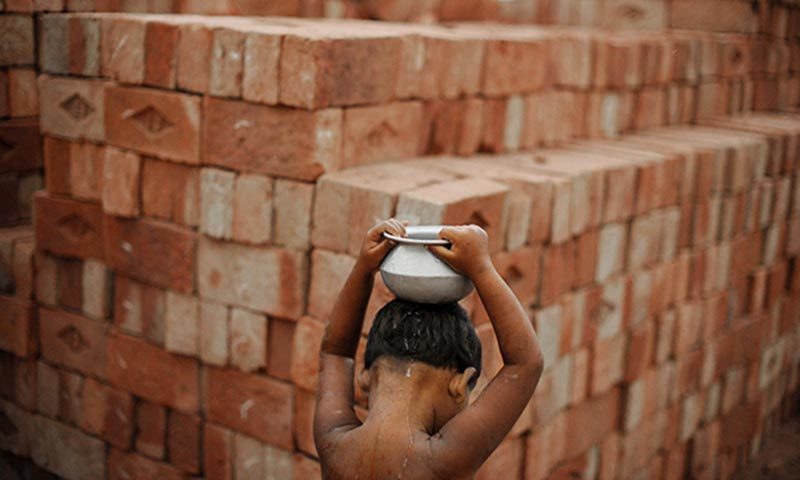IN a new report, the World Bank takes a deep look at what Pakistan needs to do to have a better future for its people by 2047, a full century after the country’s birth. In this series, the authors provide a brief summary of key recommendations of the report.
IN 28 years, Pakistan will turn 100 years old. The children born this year will be adults then. I wonder what they will see when they look around. Will they see a country teeming with opportunity? Or will they be in a country that does not offer enough jobs and does not provide the needed skills to compete? Some of them may well be new parents at 28. Will they be able to look at their own children, and see a brighter future for them?
Pakistan has some important decisions to make if it wants to give its children the future they deserve. If the country can make the right decisions now, Pakistan can accelerate and sustain growth to become a confident upper middle-income by the time it turns 100. It’s ambitious, but possible. Other countries — South Korea, China, and Malaysia — have transformed their economies within a generation, and there is no reason why Pakistan cannot achieve the same.
The alternative is not inspiring. If the country fails to accelerate and sustain growth as well as control population growth, by 2047 income levels will be close to where they are today and with challenges similar to what they are today. I like to imagine another Pakistan, in which stunting and malnutrition are gone, in which family background does not determine what job you can get, women compete equally with men, businesses thrive, and Pakistan competes with the likes of Shanghai or Singapore as a trading hub.
This week we are launching a report, Pakistan@100: Shaping the Future, which looks at some of the reforms needed to accelerate and sustain growth and transform Pakistan’s economy. Now is the time to come together and see what needs to be done to achieve this goal. A growth narrative for Pakistan needs to rest on these four elements: investing in people; using resources more efficiently; caring for the environment; and finally, improving how Pakistan is run to support growth and the implementation of difficult reforms.
Pakistan needs to think big on investing in its people. Any country wanting economic growth to be sustained and fair needs to ensure it has a productive population. Nutrition, education, jobs, and skills are all key in a country where 23 million children are out of school and well over a third of its population is stunted. And as importantly, Pakistan needs to make some big decisions on its growing population. Women in Pakistan have many more children than women elsewhere in South Asia or many peer countries. Pakistan’s population could soon double to 400 million, overwhelming education and health services, and increasingly straining Pakistan’s natural resources.
Reducing the birthrate will also be good for the country’s development and allow women to work outside the home if they so wish. Female labor force participation in Pakistan is one of the lowest in the world, reducing the economic contribution that half of Pakistan’s population can make. Pakistan’s people are its greatest asset, but only if the country is able to invest a lot more and a lot better in its children.
The future Pakistan will need to manage its economy in a completely different way. Today, Pakistan’s growth story is one of boom and bust. A few years of strong growth are always followed by crisis. We are in the middle of such a crisis. To avoid such crises in the future, both the state’s revenue collection and its private sector must be strengthened. Efforts to broaden the tax net and bolster tax administration will permanently increase tax revenues without continuing to increase the burden on those already paying taxes. The country’s private sector needs to be made more competitive through an improved business environment, increased openness to trade and investment, and reforms in the energy sector.
Caring for the environment is a key concern. Water needs to be better managed. Today, more than 80 per cent of Pakistan’s water irrigates crops that generate less than 5 per cent of the economy, and much is wasted. Better infrastructure, management, and pricing that reflects the cost of service and the scarcity of water will go a long way toward improving water efficiency. Efforts will also be needed to tackle air and water pollution, including how we use plastics.
All of these will have to be underpinned by a governance framework that is transparent and fosters accountability in how Pakistan is run. Politicians and public leaders should be more aligned with citizen needs. Too often, we have seen policies being implemented that do not necessarily benefit the general population, but just a few.
Some of the reforms, particularly those that redistribute rents from elites to the general population, will be difficult and encounter opposition. But, over the past three and a half years that I have been the World Bank’s Country Director for Pakistan, I have seen many things that make me hopeful: committed and capable politicians and civil servants that have the interest of Pakistan’s people in their hearts; strong institutions that have withstood turbulent times; a curious, dynamic and impatient youth population that wants to conquer the world; families that work hard to give their children a better future; a private sector that can be world-class under the right circumstances; a courageous and charitable population that comes together as the need arises.
The need is arising now to chart a new direction for the country. My most sincere hope is that when Pakistan looks back in 2047, when it turns 100 years old, it sees the years ahead of us as the years that enabled a bright future.
The author is World Bank Country Director for Pakistan.
Published in Dawn, March 18th, 2019















































